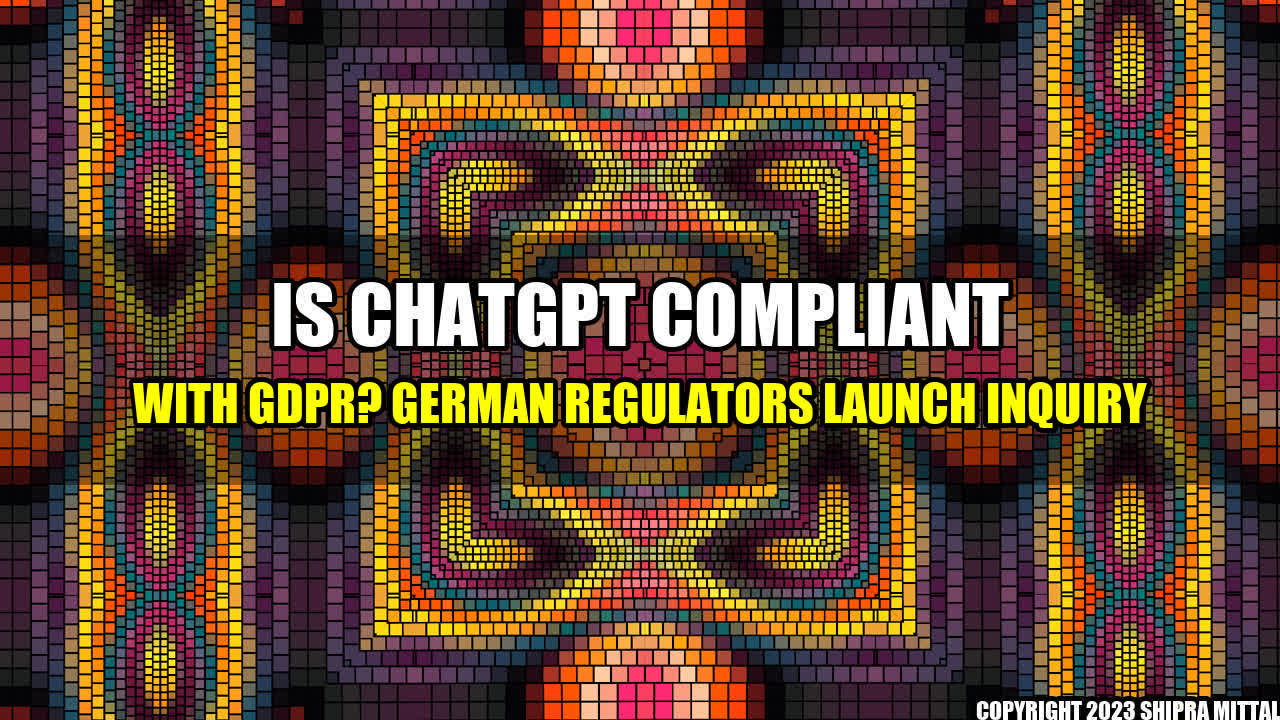Picture this: You're having a conversation with an intelligent chatbot, publicly available on a website, and it's spilling your personal information like it's nobody's business. How would you feel?
Well, this could be a reality for users of ChatGPT, a chatbot that uses artificial intelligence and natural language processing to communicate with people. Recently, German authorities have launched an inquiry into the company's compliance with the General Data Protection Regulation (GDPR), which has been in effect in the European Union (EU) since 2018.
What is GDPR, and Why is Compliance Important?
GDPR is a regulation that is designed to protect the personal data of EU citizens. The regulation applies to any company that processes the personal data of EU citizens, regardless of where the company is located. Non-compliance can lead to fines of up to 4% of a company's global revenue, or €20 million, whichever is greater.
Why is the ChatGPT Case Significant?
The ChatGPT case is significant because it highlights the need for companies to be transparent about how they collect, process, and store personal data. In this case, it is alleged that ChatGPT did not obtain proper consent from users before collecting their personal information. Additionally, users were not informed about how ChatGPT planned to use their data.
It's not just ChatGPT that's facing scrutiny. Recently, Facebook was fined €110 million for providing misleading information about its WhatsApp acquisition in 2014, and Google was fined €50 million for not obtaining proper consent for personalized advertisements. The message from regulators is clear: companies must take GDPR compliance seriously.
Conclusion
In conclusion, GDPR compliance is essential for any company that processes personal data of EU citizens. ChatGPT's case is just one example of the strict enforcement of these regulations, and companies must ensure that they are collecting data with the proper consent and handling it in a transparent manner. Failure to comply can result in serious consequences, including hefty fines and damage to their reputation.

Akash Mittal Tech Article
Share on Twitter Share on LinkedIn